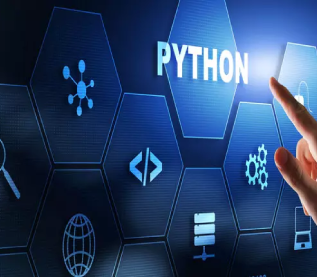- Introduction to Python
- What is coding?
- Python Versions and Language.
- Python Programming Cycle
- GIT Introduction and Setup
- Flowchart
- Python command and script
- Data Types
Courses Description
Python emphasizes programming concepts and developing applications. Learning real-time concepts of Python programming, and front-end technologies like html, and CSS. Its language construct as well as its object-oriented approach aim to help programmers write clear, logical code for small and large-scale projects.
| Date | Days | Timings |
|---|---|---|
| 17-Jun-2024 | Monday (Monday-Friday) |
08:00 AM (IST) |
| 12-May-2024 | Wednesday (Monday-Friday) |
08:00 AM (IST) |
| 15-Jun-2024 | Saturday (Saturday-Sunday) |
11:00 AM (IST) |
| 15-Jun-2024 | Saturday (Saturday-Sunday) |
11:00 AM (IST) |
Course content
-
Fundamentals of Python
-
Working with Numbers
-
Operators
-
Python Data Types
-
Python Containers Lists
- Built-in Functions- cmp(), len(), min(), max()
- List Operators +,*,[], in, not in
- Python List Slicing.
- Accessing elements in the list.
- Deleting List items.
- Loop list, Copy list, Join list, Sort list, Updating list.
- Indexing and Matrixes.
-
Tuples
-
Dictionary
-
Sets
-
Control statements in Python
-
Functions
-
Advance Concepts Exception Handling
-
File Handling
-
OOP (Object-Oriented Programming)
-
Generators, Iterators, Threading, and Decorators
-
Python Packages and importing Modules
-
GUI Programming
-
Database Connectivity
-
Overview and Framework of Django
-
Version control with Git
-
Basic concepts of Numpy and Pandas
Why Choose Tops Technologies ?
Practical Learning
Experienced Trainers
100% Career oriented
Certification
Why you should learn Python Course?
- Python’s syntax is straightforward and resembles English, making it easy for beginners to learn and understand.
- Its clean and readable code structure allows for easy maintenance and updates.
- Python can be used for a wide range of applications including web development, data analysis, artificial intelligence, scientific computing, and more.
- Python boasts a vast collection of libraries and frameworks such as Django for web development, Pandas for data analysis, and TensorFlow for machine learning.
- Python is excellent for automating repetitive tasks and writing simple scripts to save time and improve productivity.
- Python is open-source, meaning it is free to use and distribute, with contributions from developers worldwide enhancing its capabilities.
- Major companies like Google, NASA, and Netflix use Python for various applications, highlighting its reliability and effectiveness.
Highlights of Our Python Course
- Engage in numerous coding exercises and real-world projects to solidify your understanding.
- Work on comprehensive projects that integrate multiple concepts learned throughout the course.
- Build a portfolio of projects that demonstrate your skills and knowledge.
- Receive help in crafting a standout resume and LinkedIn profile.
- Access exclusive job postings and opportunities within our network.
- Enhance crucial soft skills including effective communication, collaborative teamwork, and efficient time management.
- Personalized coaching, top-notch resume building, and exceptional interview preparation.
₹20,000 ₹50,000 60% off
About course:
Our Python course is designed to take you from a beginner to an advanced Python programmer, equipping you with the skills needed to excel in today's tech industry. Whether you're looking to start a new career, enhance your current role, or simply gain a valuable skill, this course is structured to provide comprehensive and practical knowledge of Python.
Level
Beginner
Topic
Python
Class
Online
Duration
2 Months
Language
English
Other includes:
- Full lifetime access
- Downloadable resources
- Certificate of completion



